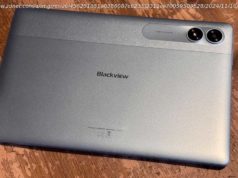Congratulations, you made it through the humorless hellscape that is April Fool’s Day. Sure, it is the one day of the year when society collectively applies the appropriate amount of skepticism before gobbling up spoonfuls of bullshit. And yeah, some of the pranks may have made us chuckle—but that’s only because they’ve trained us, man. When the best thing a holiday has going for it is that Chris in marketing
Congratulations, you made it through the humorless hellscape that is April Fool’s Day. Sure, it is the one day of the year when society collectively applies the appropriate amount of skepticism before gobbling up spoonfuls of bullshit. And yeah, some of the pranks may have made us chuckle—but that’s only because they’ve trained us, man. When the best thing a holiday has going for it is that Chris in marketing finally got to show off how clever he is, perhaps it’s time to just let that one go.
If you ask Google whether it has a discrimination problem, the company might point you to its industry-leading diversity efforts or its program for responding to complaints. But employees who challenge that narrative by asserting that it has created anything but a healthy, supportive environment are being labeled troublemakers and, in some instances, pushed out of the company. Today, Google faces so many of these troublemakers that it can no longer simply shrug them off, even if its every instinct is to do just that.
A little-known Canadian data firm ensnared by an international investigation into alleged wrongdoing during the Brexit campaign created an election software platform marketed by Cambridge Analytica, according to a batch of internal files obtained exclusively by Gizmodo.
For the longest time, the iPad was Apple’s big boring thing. It never lived up to its promise to revolutionize media and save magazines. It didn’t really change the way we play mobile games. It certainly didn’t seem like a good investment. For the first eight years of the iPad’s existence, my primary exposure to it has been at coffee shops with those tablet-based cash registers. But this week, Apple did something subtle but remarkable: It talked me into buying one.
On May 25,1798, the HMS DeBraak was entering Delaware Bay when a squall struck without warning. The British ship that originally belonged to the Dutch capsized and sank, taking 34 sailors and a dozen Spanish prisoners down with it. Rumored to contain a hoard of gold and jewelry, the DeBraak became a popular target for treasure hunters in the years that followed. The wreck was finally discovered in 1986, lying under 80 feet of water at the mouth of the Delaware River. The team who found the ship attempted to raise it from its watery grave, resulting in one of the worst archaeological disasters in modern history. The event precipitated the passing of long-overdue laws designed to prevent something like this from ever happening again.
Thirty years changes a lot. But one thing it hasn’t changed is just how shocking, wonderful, and funny Tim Burton’s cult classic film Beetlejuice is.
The film opened March 30,1988, to mostly positive reviews and noteworthy financial success. But the real reason it has endured in the three decades since its release is that the movie somehow manages to feel as original today as it must have then. It would feel original in any era, really, because the imaginative story it tells about a gross, weird, scary, yet oddly optimistic afterlife doesn’t mesh with anything audiences had seen before or have seen since. The insanity and surprises are truly timeless.
Exactly one year ago, Elon Musk revealed that he’d co-founded a new startup, Neuralink, with the ambition of inventing a brain-computer interface or, as it was later called, a “ wizard hat for the brain .” These types of interfaces, in their current iterations, are mostly used to treat Parkinson’s disease and other brain disorders, and the Defense Advanced Research Projects Agency has poured $65 million into this research. But the tech industry sees them as transformative devices that could potentially enable breakthroughs in silent, thought-to-text typing or even telepathy. Musk has been uncharacteristically quiet about his work at Neuralink, except to suggest in an April 2017 interview with Wait But Why that the company is interested in treating brain disorders and, within the next decade, enabling telepathy through neural implants.
Though Neuralink has remained highly secretive about its work since its launch last year, its sparse website states that the startup is developing “ultra high bandwidth brain-machine interfaces to connect humans and computers.” It fails to mention, however, that Neuralink is at least preparing to test its devices on animals, if not already doing so.
The more you dine out, the more you’re getting exposed to potentially hazardous chemicals known as phthalates, suggests a new study published Wednesday in the journal Environment International.
Phthalates are a group of chemicals used to help make plastics more flexible and durable. They can be found in everything from cosmetics to children’s toys to medical devices. Most of us, though, are exposed to low doses of phthalates through contamination of our food. Research, mostly in animals, has suggested that certain phthalates can muck with the organs and glands responsible for making hormones, particularly androgens like testosterone.
A number of Facebook users discovered over the past few days that the social media company had collected a creepy level of information about their calls and texts. Many users claimed they never gave Facebook permission to gather this information. However, in response to the uproar, Facebook says the “feature” is opt-in only. Basically, the company’s saying it’s your own fault if you don’t like it.
To understand what Facebook is defending requires a lot of explanation—and that’s the heart of the problem.
You might have missed it, basking in the glow of entertaining masterpieces like Jurassic Park, Jaws, and E. T., but Steven Spielberg, the architect of your childhood, is old. The director turned 71 in December and that does not, by itself, indicate he is old. Jane Fonda, for example, is 80-something and talks about social justice like a Tumblr teen. No—Spielberg’s descent into old-man-yells-at-cloud territory became apparent in the last two weeks as he’s entered the public eye to plug something beyond turgid historical dramas.
So there I am, six thousand miles away from home in a foreign country (whose language I don’t speak) covering a trade show by myself, and I realize the power brick on my XPS 13 is busted. This is a disaster. My laptop is my lifeblood. I need it to write stories, edit photos, and collaborate with the team back home. Without it, I’m truly screwed. And what’s even worse is that my work XPS is the last generation without support for charging over USB-C, and because Spain doesn’t give a shit about Dell, there was no replacing it (trust me I tried).
Home
United States
USA — software iPads, Jerks, and Poisoned Food: The Best Gizmodo Stories of the Week






